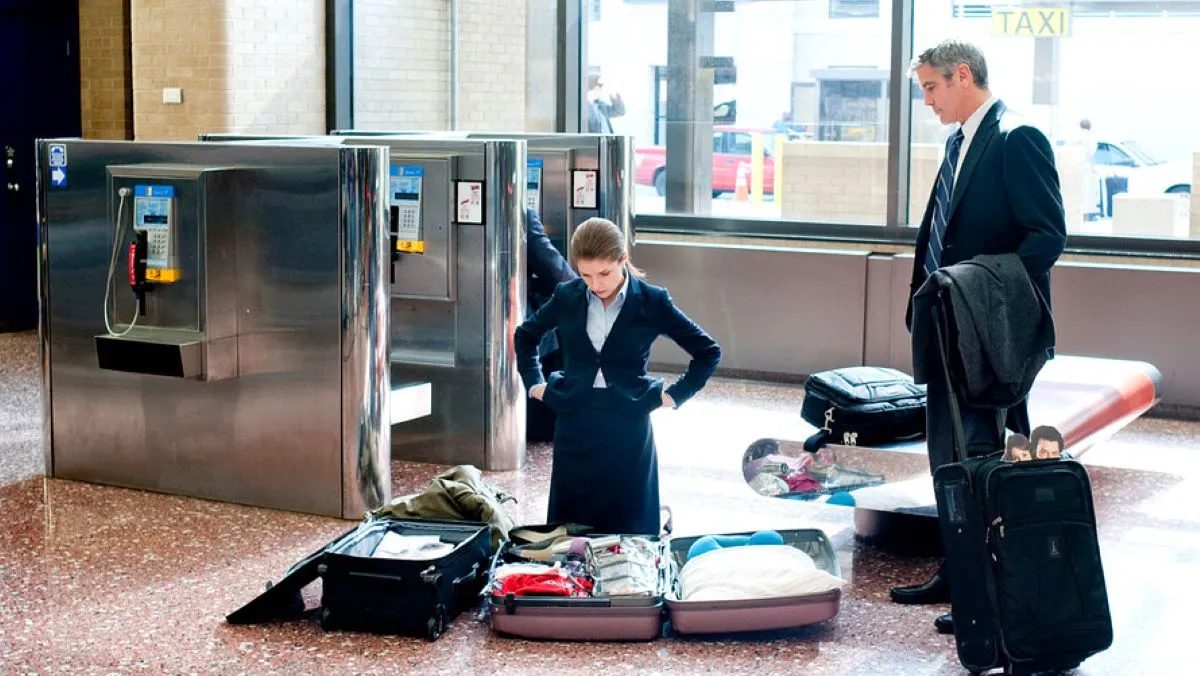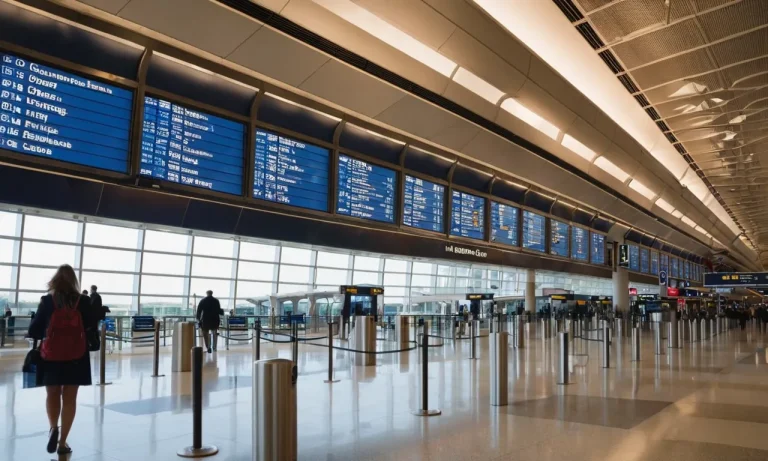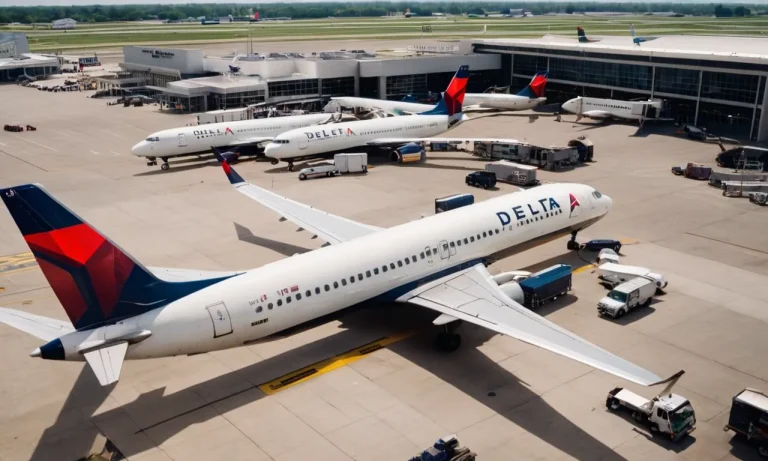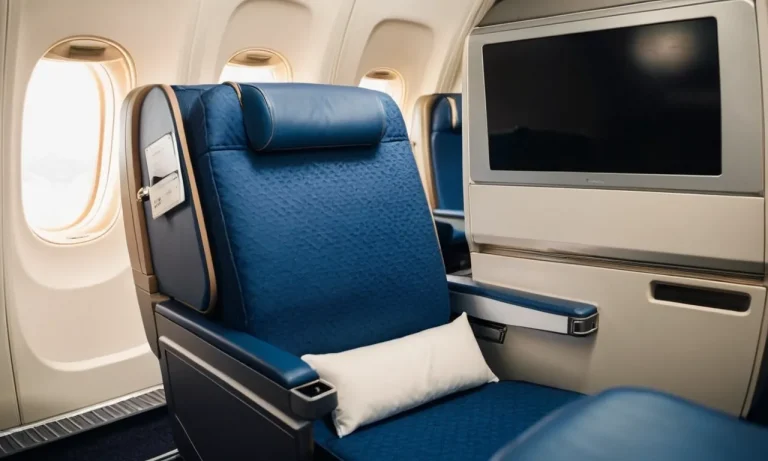Heading to the airport with a stuffed carry-on bag and wondering if the airline will weigh it before boarding? While policies vary between airlines, there are some general guidelines on when and how carry-on bags are weighed.
If you’re short on time, here’s a quick answer: Most airlines don’t routinely weigh carry-ons, but they can if the bag appears oversized. Gate agents or flight attendants may single out bags that look too large or heavy.
The best approach is to know the carrier’s size and weight rules and try to pack light.
This in-depth article explains everything you need to know about carry-on weigh-ins including typical airline policies, how weight is enforced, what happens if your bag is over the limit, and tips for avoiding carry-on weigh-in issues altogether.
Standard Airline Rules for Carry-On Weight
When it comes to carry-on luggage, airlines have specific rules and regulations in place to ensure passenger safety and convenience.
One of the most important factors to consider is the weight limit imposed on carry-on bags. Let’s take a closer look at the standard airline rules for carry-on weight.
Published Weight Limits
Most airlines have published weight limits for carry-on bags. These limits vary from airline to airline but are typically around 7-10 kilograms (15-22 pounds).
It’s important to note that these weight limits are in place for several reasons.
Firstly, carrying heavy bags can be a safety hazard, as it may be difficult to store them securely in the overhead compartments. Additionally, airlines have to consider the weight distribution of the aircraft for optimal performance.
Exceeding the weight limit may result in additional fees or having to check in the bag.
International vs Domestic Policies
It’s important to note that carry-on weight limits can vary depending on whether you are traveling domestically or internationally.
International flights often have stricter regulations, especially for certain destinations where weight restrictions are enforced more strictly.
For example, if you’re flying on a smaller aircraft for a regional flight, you may have to adhere to lower weight limits compared to a larger international flight.
It’s always a good idea to check with the specific airline or consult their website for the most up-to-date information regarding carry-on weight restrictions.
How and When Carry-On Bags Get Weighed
When it comes to carry-on bags, airlines have specific rules regarding weight limits to ensure the safety and comfort of all passengers.
To enforce these rules, airlines employ various methods to weigh carry-on bags, both at check-in and at the gate.
Random Checks at Gate
At the gate, airlines may conduct random checks to ensure that carry-on bags comply with weight restrictions.
Passengers may be asked to place their bags on a scale, and if the bag exceeds the allowed weight, they may be required to check it in as a regular checked bag or pay an additional fee.
These random checks help maintain fairness and ensure that all passengers adhere to the same rules.
Overstuffed Bag Inspections
In some cases, airlines may visually inspect carry-on bags to determine if they are overstuffed or too bulky.
This is done to ensure that the bag can fit in the overhead compartments or under the seat in front without causing any inconvenience to other passengers.
If a bag appears to be excessively large or bulky, the airline may request the passenger to check it in or rearrange the contents to meet the size requirements.
Pre-Boarding Weight Stations
Some airlines have pre-boarding weight stations where passengers can voluntarily weigh their carry-on bags before reaching the gate.
This allows passengers to assess if their bags meet the weight limits and make any necessary adjustments before boarding the aircraft.
By offering this service, airlines aim to reduce delays and ensure a smooth boarding process.
It is important for passengers to familiarize themselves with the specific carry-on bag weight restrictions of the airline they are flying with. These restrictions can vary between airlines and even different flights within the same airline.
By adhering to these rules, passengers can avoid any potential inconvenience or extra fees at check-in or at the gate.
Consequences of Overweight Carry-On Bags
When it comes to carry-on bags, airlines have specific weight restrictions in place for a reason.
Overweight carry-on bags can have several consequences for passengers, ranging from forced check-in at the gate to denial of boarding.
It is important for travelers to be aware of these consequences to avoid any inconvenience or additional costs during their journey.
Forced Check-In at Gate
If your carry-on bag exceeds the weight limit set by the airline, you may be asked to check it in at the gate. This means that you will have to leave your bag with the airline staff just before boarding the aircraft.
While this may not seem like a big issue, it can be problematic if you have valuable or fragile items in your bag that you would prefer to keep with you throughout the flight.
Additionally, if the flight is full and there is limited space in the overhead bins, you run the risk of your bag being checked in at the gate even if it is within the weight limit.
Overweight Fees
Most airlines charge fees for overweight carry-on bags. These fees can vary depending on the airline and the weight of your bag.
It is important to check the airline’s baggage policy before your trip to avoid any surprises at the check-in counter.
Paying overweight fees can be an added expense that you may not have budgeted for, so it’s best to pack your carry-on bag within the weight limit to avoid these extra charges.
Denial of Boarding
In some cases, if your carry-on bag exceeds the weight limit by a significant amount, you may be denied boarding altogether.
This is because airlines have strict weight restrictions for safety reasons and to ensure that the aircraft stays within its weight limits.
If your bag is too heavy, it could potentially pose a risk during takeoff, landing, or turbulence. It is always better to adhere to the weight limits set by the airline to avoid being denied boarding and potentially missing your flight.

Carry-On Weigh-Ins for Basic Economy Fares
If you’ve booked a basic economy fare for your upcoming flight, it’s important to familiarize yourself with the specific rules and restrictions that come with it. One such restriction that you may encounter is the carry-on weigh-ins.
Airlines have implemented more strict weight enforcement for basic economy passengers in recent years, aiming to ensure that these passengers adhere to the specific limitations set for their fare class.
More Strict Weight Enforcement
While carry-on weight limits have always been in place for all passengers, basic economy fares often have lower weight allowances compared to other fare classes.
This means that airlines are more vigilant when it comes to enforcing these weight restrictions for basic economy passengers.
While it may seem inconvenient, it’s important to remember that these measures are in place to ensure fairness and to prevent overcrowding in overhead compartments.
Weighing at Check-In vs Gate
The specific process of weighing carry-on bags may vary depending on the airline and airport. In some cases, passengers flying on basic economy fares may be required to have their carry-on bags weighed at the check-in counter.
This allows airlines to assess the weight and size of the bag before passengers proceed through security.
However, other airlines may choose to conduct weigh-ins at the gate. This means that passengers will need to have their carry-on bags weighed right before boarding the aircraft.
It’s important to note that if your bag exceeds the weight limit at the gate, you may be required to check it in, which could incur additional fees.
Packing Light Essential
Given the stricter weight enforcement for basic economy fares, it’s crucial to pack light and efficiently. Consider investing in a lightweight carry-on bag and packing only the essentials.
Before your flight, carefully review the weight restrictions for your specific airline and fare class.
By packing light and adhering to these restrictions, you can avoid any potential inconvenience or additional fees at the check-in counter or gate.
Remember, the goal of these weight restrictions is to ensure a smooth and efficient boarding process for all passengers.
By understanding and complying with these regulations, you can help make your travel experience more enjoyable for yourself and fellow travelers.
Tips to Avoid Carry-On Bag Weighing Issues
Know the Weight Limits
One of the best ways to avoid carry-on bag weighing issues is to familiarize yourself with the weight limits set by the airline you are flying with.
Different airlines have different weight restrictions for carry-on bags, and exceeding these limits can result in additional fees or having to check your bag.
Check the airline’s website or contact their customer service to find out the specific weight limits for your flight.
Use a Lighter Suitcase
Choosing a lightweight suitcase can save you from potential weighing issues at the airport. Opt for suitcases made from lightweight materials such as polycarbonate or aluminum.
These materials are not only durable but also significantly lighter compared to traditional hard-sided suitcases.
Investing in a lighter suitcase can give you more flexibility when it comes to packing without worrying about exceeding weight limits.
Pack Only Essentials
When packing your carry-on bag, it’s important to prioritize and pack only the essentials. Avoid packing unnecessary items that you won’t need during your journey.
Consider versatile clothing options that can be worn multiple times or packed in a compact manner.
Additionally, try to pack travel-sized toiletries to save space and weight in your carry-on bag.
Wear Bulky and Heavy Items
If you’re traveling with bulky or heavy items such as jackets, boots, or sweaters, consider wearing them instead of packing them in your carry-on bag.
This can help you avoid exceeding weight limits while also keeping you warm and comfortable during your journey.
Layering your clothing can also be a practical way to manage varying temperatures throughout your trip.
By following these tips, you can increase your chances of avoiding carry-on bag weighing issues at check-in and gate. Remember to always check the specific weight restrictions of your airline and pack smartly to ensure a hassle-free travel experience.
Conclusion
While routine carry-on weighing is rare, airlines can and do inspect bag sizes and weights if they appear overloaded.
Following size and weight rules, packing light, and smoothing out bulky items can help avoid problems.






